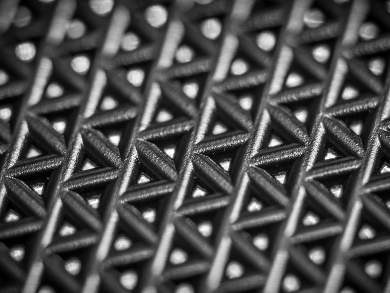Clean water, clean energy, global warming, and affordable healthcare are four major global concerns resulting from clean-water shortages, widely fluctuating oil prices, rapid climate change, and the high cost of healthcare. Current trends in membrane science aim to tackle these four major issues by means of innovative membrane technologies for the separation and purification of highly valuable products or the removal of unwanted species.
Advantages of Membrane Technology
Membrane science is a fully integrated science that may involve materials science and engineering, chemistry and chemical engineering, separation and purification phenomena, environmental science and sustainability, molecular simulation, and process and product design.
It is fascinating to see that some membrane processes can outperform traditional separation processes, such as distillation and sorption, with a much smaller footprint, capital cost, and energy consumption, as well as being more environmentally friendly. In addition, the same membrane types with some modification of the porosity and surface properties may be useful for different applications, such as clean water, clean energy, CO2 capture, drug purification, and artificial organs. In addition, a variety of novel materials are available for potential membrane applications owing to breakthroughs in the last two decades in the molecular design of functional and porous polymers.
We have, for example, developed a novel process for advanced high-flux forward osmosis (FO) membranes, which surpass the performance of most conventional nanofiltration processes. Our process achieves a 99.5 % rejection rate for heavy-metal ions. Originally developed for water treatment by making desalination more energy efficient, this invention potentially provides a solution to wider global issues such as water shortages and groundwater contamination from pollutants.
Research towards Integrated Membrane Processes
My longer-term research focus is to develop low-energy membrane separation technologies for clean water, clean air, and clean energy. We also aim to integrate different membrane processes to maximize separation performance and to synergistically minimize energy consumption. Examples of our interests include the integration of FO membranes and membrane distillation, a hybrid osmotic power generation and seawater desalination system, and the combination of particle grouping devices and membrane dehumidification. The latter removes haze particles and lowers air humidity for better living and working conditions.
The combination of osmotic power generation and seawater desalination in a hybrid system not only makes seawater desalination less energy dependent and more sustainable but also alleviates the environmental issues associated with the disposal of waste brine (highly concentrated solution of salts and contaminants) obtained from reverse osmosis (RO) desalination plants.
Challenges
In summary, challenges for membrane materials and fabrication innovations include the following:
(1) How to molecularly design membrane materials by means of advanced molecular simulation and nanotechnology with desirable separation performance;
(2) How to fabricate membranes with desirable morphology, mechanical properties, and sustainable separation performance;
(3) How to design materials with anti-fouling characteristics and how to design membranes with minimal fouling;
(4) How to develop effective membrane processes with minimal pollution, lower energy consumption, and lower CO2 emission.
The market demands on innovative and better membranes are excitingly high, as membrane products today continue to penetrate our daily life from the treatment of drinking water to mobile phones and to life-science applications such as artificial kidneys and skin.
About the Author

His research interests include membrane science and technology for clean water and clean energy applications, pharmaceutical separation, carbon dioxide capture, and nanotechnology and nanocomposites.
Also of Interest
Press release on 2015 President Technology Award from A*STAR




